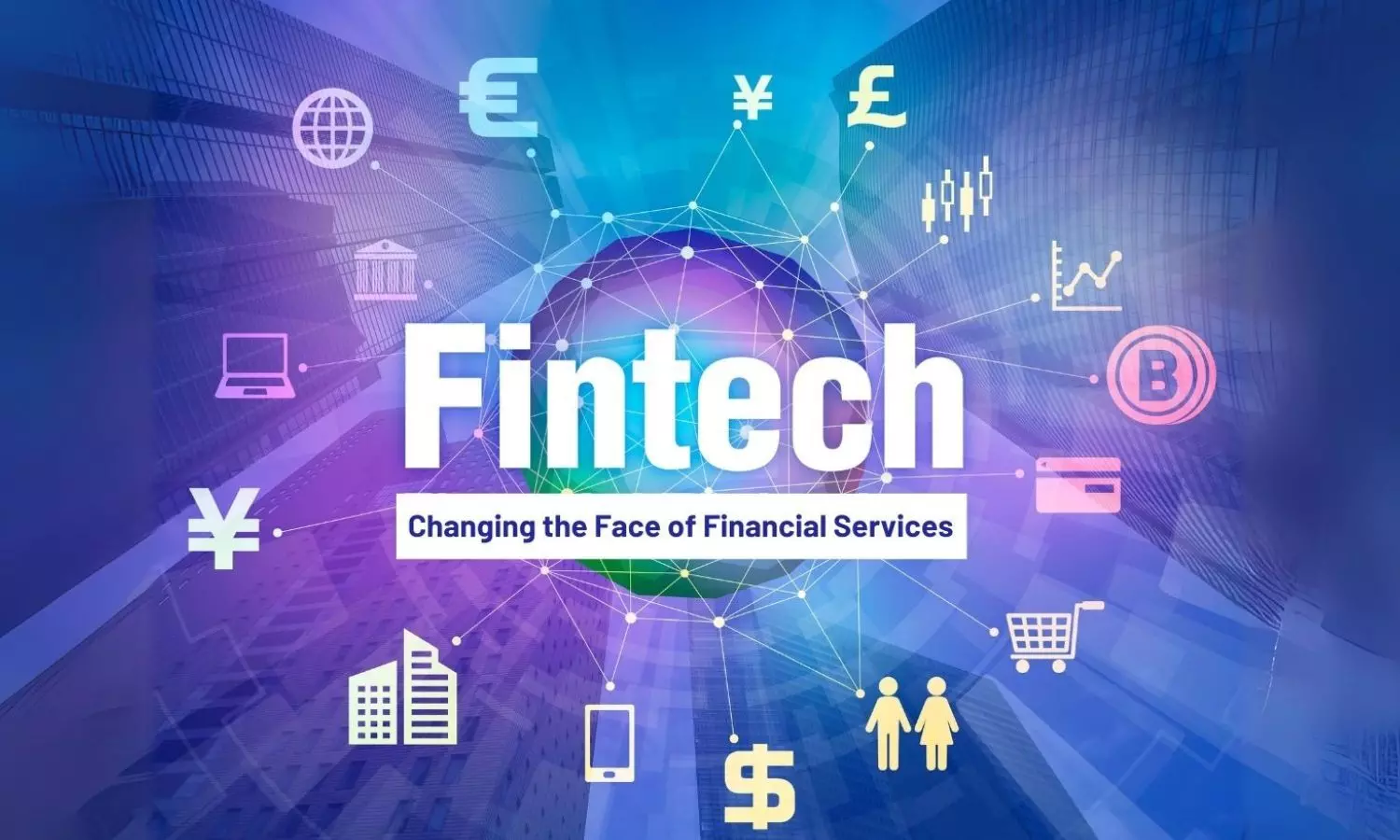The Disruptive Influence of FinTech: Changing the Face of Financial Services
Due to technological advances, the finance industry has experienced a notable transformation and growth. Among various aspects, the term FinTech, aka financial technology, has become quite popular. Yes, you heard it right!
The Disruptive Influence of FinTech: Changing the Face of Financial Services

Owing to technological advancement, the finance sector has witnessed a significant surge and transformation. In this context, the term FinTech has gained noteworthy traction.
According to Invest India, India has become the fastest-growing FinTech market in the world, with an adoption rate of 87%. Furthermore, the market size is poised to grow to $1.5 trillion by 2025. Thus, it is true to say that the dynamic fusion of finance and technology is certainly driving the financial sector into a new era of innovation and accessibility.
Therefore, beyond convenience, the adoption of technology is playing a vital role in shaping the future of FinTech, embracing financial inclusion. Thus, by offering services such as online lending to those previously underserved, FinTech startups are certainly driving change like never before.
What FinTech is all about
FinTech refers to the integration of technology into financial services in order to improve and automate their delivery and use. However, issues such as poor internet connectivity and an unbanked populace have undoubtedly hampered market expansion. But, with a wide range of developments such as mobile payment innovations, peer-to-peer lending platforms, robo-advisors for investment management, crowdfunding platforms, digital wallets, blockchain-based cryptocurrencies, and automated insurance, the advent of technology in finance has undoubtedly reshaped the FinTech sector.
Technologies: Revolutionizing the Financial Sector
Cloud Computing: The advent of cloud computing is catering to unique needs, maintaining sensitive data risk in the FinTech sector. With real-time processing and secure data capabilities, cloud computing solutions help FinTech firms adapt to market change while improving user accessibility.
AI: AI-powered chatbots and tailored services are two examples of how AI and ML enhance the overall customer experience in FinTech banking. It can assist in avoiding long lines, saving service time, and conveniently accommodating a wide range of consumers, preventing real-time payment frauds such as Authorized Push Payment. According to the Citi Group report, it is estimated that AI is poised to revolutionize the global banking sector, potentially boosting its profit pool by $170 billion by 2028.
Blockchain: Ever since digitalization gained attention in finance, blockchain technology has become very popular. With the help of blockchain and cryptocurrency, client data management is safer and more transparent. As it is based on distributed ledger technology (DLT), it is reliable and safe. FinTech performs better in this way than traditional banks, which are more susceptible to cybersecurity risks since they rely on outdated technologies.
Impact of FinTech
Today, the impact of FinTech is going beyond national borders. So, let's delve into some advantages FinTech is offering, transforming the banking industry to reach great heights:
- Leveraging AI algorithms, FinTech innovation is enhancing customer satisfaction, optimizing and streamlining processes effectively. In fact, the adoption of AI and data analytics is not only increasing efficiency but also helping firms detect fraud and mitigate risk. In addition, AI tools are also helping resolve queries, providing customers with personal finance management and within-minute resolutions.
- FinTech organizations now offer a variety of digital platforms for transferring money around the world, decreasing the need to carry hard cash, credit, or debit cards. Thus, through digital banking and micro-investment platforms, FinTech has enabled people to better manage their finances. In fact, democratization has expanded financial inclusion and competition, compelling firms to deliver better services at cheaper rates, better pricing, and greater transparency.
- FinTech not only raises money for banks but also assists firms in developing and generating cash, increasing their monetary value. Therefore, it is true to say that FinTech’s services extend beyond banking and investment to include fundraising. Platforms that leverage Fintech IT solutions assist businesses in raising financing for their endeavors by improving processes and increasing accessibility.
FinTech: A Boon or Bane
There are so many different opinions about FinTech in the banking sector. While many believe it will have a positive impact on financial services, many others do not have that kind of outlook. Even some consider it a bane as well. And this is somewhat true for traditional banking. However, for modern bankers and systems, the advent of FinTech is the imperative cornerstone of banking evolution.
Ever since finance became integrated with technology, things have taken great turns. Gone are the days when people used to stand in lines for hours to credit or debit money. Today, it just takes a few taps and clicks to lend or receive money and get account information.
Thus, by streamlining processes, increasing efficiency and providing greater convenience for both customers and financial institutions, the emergence of FinTech has certainly become a boon. The integration of FinTech has also opened up new opportunities for innovation and growth in the financial services industry, paving the way for a more interconnected and digital future.
Fintech: Transforming Financial Services!
Financial services are undergoing a digital revolution that the banking sector cannot ignore. Like any other industry, technology has quietly but significantly impacted the finance sector, with FinTech emerging as an influential aspect. Thus, to guarantee smooth operations, FinTech is becoming a boon, benefiting both businesses and consumers globally, with India being no exception.

